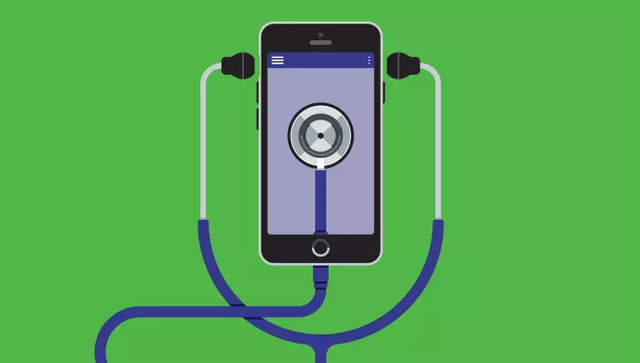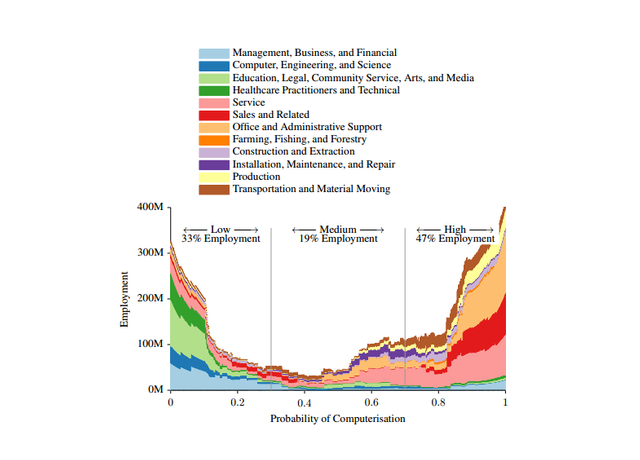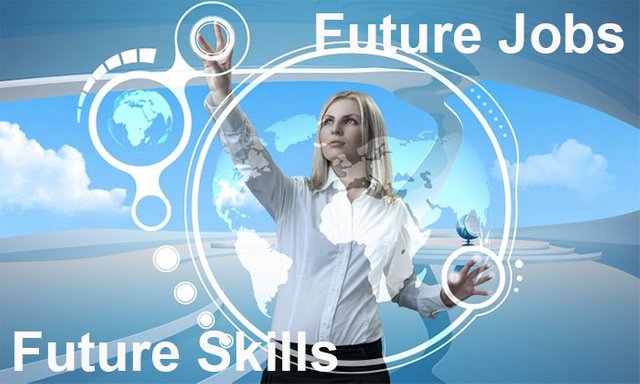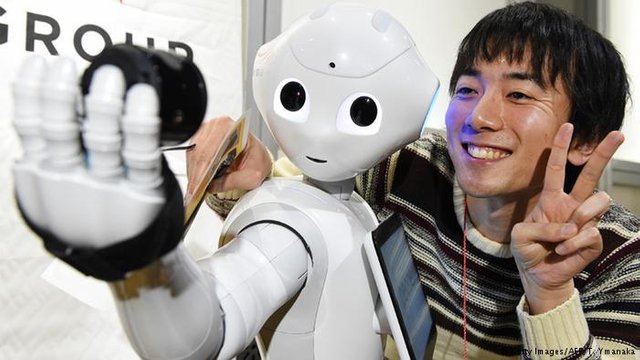The Problem is not ROBOTS, the Problem is POLICIES
Robots and artificial intelligence pose challenges for contemporary societies. For some robots are a threat, leading to unemployment, for others are the possibility of more welfare.
Imagine yourself for a moment in bed, sick, with a fever, alone. You should go to the nearest medical center. It is then that you decide to opt for a video conference via the mobile phone in an internet healthcare platform. Or choose to download an application that uses artificial intelligence, capable of processing large amounts of data in seconds, for screening and diagnosis of diseases. It is easy, convenient, inexpensive, accessible to anyone and saves time.
The quality of the service divides opinions. The same happens with the complex social, work and unemployment, and ethical effects, in terms of defining the limits of action of these technologies, as well as privacy and security issues, resulting from exhaustive public documentation of private life.
In one of the panels of the technology summit in Lisbon, Web Summit, which in November joined Gary Mudie, director of Babylon (medical application for long-distance consultations) and Peter Bialo, representative of a healthcare network platform, DocPlanner, which allows diagnostics or make appointments, this was one of the topics under discussion. Both reflected that health care is coming out of hospitals and clinics into the virtual world, mixed with challenges, opportunities and uncertainties.
At the moment there is the idea that there is more apprehension than optimism. At the aforementioned Web Summit conference, the two stakeholders were cautious in saying that in many roles doctors or nurses can not be replaced by robots, automated systems, or artificial intelligence, but in many of them yes. At the automation level, this already happens in many specialties. And the trend is growing. In some cases, we are talking about collaboration between people and machines. And in others of replacing people by machines.
This type of medicine remotely, with our mobile phones transformed into clinics, is already a reality in the United Kingdom where Babylon operates. For weeks now, in the Financial Times, it has been reported that the company is trying to create the largest repository of medical knowledge, a kind of "super-doctor" that sorts, diagnoses and even do mobile phone treatments. The new version of the application is expected to be the first clinically certified robot to provide diagnostics, based on the capabilities of big data and artificial intelligence, that allow the connection between gigantic databases.
And this is just one example among many others of what is already happening. In the public perception, the labor sectors affected in the last years by the technological transformations were circumscribed to non-creative professions. It now begins to be seen that this is not the case, with the big data and artificial intelligence skills, capable of working mass information and gaining more advanced knowledge, which can be applied in a robot, but also in a mobile phone, a computer program or In any instrument prepared to interact with humans.
As long as the machine has information to analyze and the ability to rationalize it, it manages to generate a work plan and a strategy to execute it. In other words, services, transportation, or qualified employment, from areas as diverse as medicine, law, advertising, accounting, journalism, banking, and many others, will be confronted with this reality.
A 2013 University of Oxford research suggested that almost half (47%) of today's jobs in the US are at high risk of disappearing in the next ten to 20 years, while 33% are at low risk and 19% medium risk. And the reason is clear: for the first time technology is advancing on so-called "cognitive" or "non-routine" tasks.
In January, former President Barack Obama had warned that automation would make many of the jobs of the middle class obsolete, and for days the well-known entrepreneur Mark Cuban said that Trump's employment policies (protectionism and anti-immigration laws) will fail Because in the line of what others have said (from scientist Stephen Hawking to magnate Elon Musk) mass unemployment has come to stay. In his vision there will be fewer and fewer jobs that a robot can not do better than a human. It was also with this reasoning that Bill Gates proposed the creation of a tax for robots. And it is also the philosophy of those who defend the Universal Basic Income - compensation for those who saw the activity become obsolete and did not have time to adapt.
Historically technological revolutions end up making outdated activities, but create many others, although different. But this time, the speed, the scale and the fact that the machines are getting smarter, creates the sensation that we may be facing a scenario of unemployment structure. Of course there are those who do not believe in these scenarios, claiming that the fourth industrial revolution does not differ from previous ones. Some activities will be affected, but there will be other promising areas that will compensate for losses, strengthening employment growth, growth and investment. A World Economic Forum report last year (The Future of Jobs) said that 65% of children who are now entering schools will have professions that do not even exist yet.
There are those who advocate that artificial intelligence should be seen as an opportunity to expand human potential rather than as a substitute for it. An expert on artificial solutions, Andy Peart, exposes that artificial intelligence will be as essential to the customer service business as the Internet 20 years ago or to mobile applications 5 years ago.
A few years ago it was assumed that we would all work less and have more time for leisure, leaving tasks heavier for machines, improving the quality of life. Today the perception is that the situation has deteriorated most. The jobs appear to decrease and the world seems to be divided between those who work more, or in precarious conditions, and those who simply do not have job.
But the solution, as protectionism and xenophobia do not seem to be, is not to point the blame to robots. Robots and artificial intelligence mean advantages, as long as we are simultaneously able to question the model of society we have been building, namely at the level of redistribution of wealth generated by technological growth, and also in the new educational paradigms, requiring new processes and contents.
Will we be able to respond to this challenge? There is no doubt that in the coming times more activities and industries will be overcome. But if some old policies also become obsolete and new and more just are instituted, we will be sure that robots and humans will be fraternal friends.
Refrences:
- https://www.docplanner.com/about-us
- https://www.babylonhealth.com/
- https://www.facebook.com/HealthConfHQ/videos/197958937332634/
- https://www.ft.com/content/1efb95ba-d852-11e6-944b-e7eb37a6aa8e
- http://www3.weforum.org/docs/Media/WEF_FutureofJobs.pdf
- https://www.nytimes.com/2017/01/12/upshot/in-obamas-farewell-a-warning-on-automations-perils.html?_r=0
- http://www.oxfordmartin.ox.ac.uk/downloads/academic/The_Future_of_Employment.pdf
- http://fortune.com/2017/02/22/bill-gates-proposes-a-robot-tax/
- http://www.artificial-solutions.com/blog/author/andy-peart






Good luck.!!!
Thanks